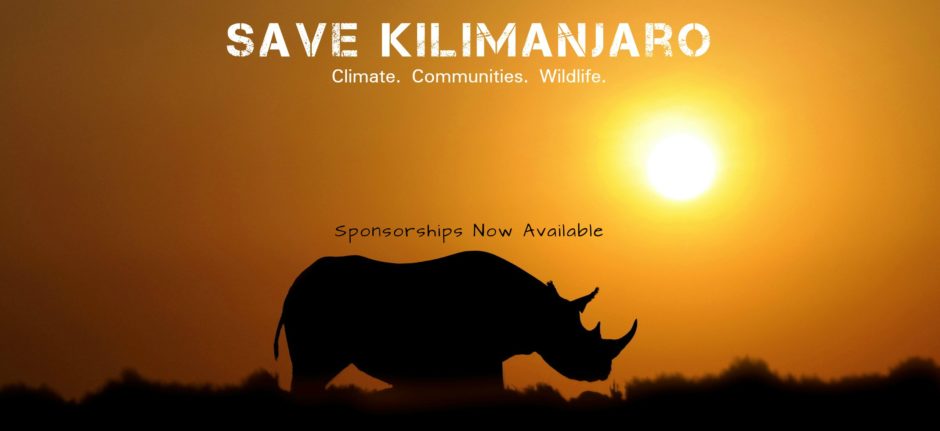Forest Conservation. Reforestation. Sustainable Agriculture.
Deforestation generates about 20 percent of greenhouse gasses, which contribute to global warming and climate change.
Deforestation also cripples our planet’s ability to filter carbon dioxide from our air. Destroying these carbon sinks threatens entire watersheds, endangered species and endangered cultures. According to the IPCC, “reducing deforestation and forest degradation rates represents one of the most effective and robust options for climate change mitigation.”
Local stakeholders around the world are stepping up to defend vital ecosystems. We are doing what we can to draw attention to their plights and plans. We have 15 projects ready to go in East Africa today. They need your help.
Global tree cover loss reached a record 29.7 million hectares (73.4 million acres) in 2016. The world lost more than 4.4 million hectares of primary tropical forest in 2020–an area larger than Switzerland. Forest fires contributed to the recent spike.
Deforestation due to agriculture, logging, and mining.
Energy conservation, renewable energy and sustainable agriculture are all part of the solution to humanity’s contribution to global warming and climate change, but we need proven carbon capture strategies to help restore balance to our atmosphere. We need to defend vital ecosystems and biodiversity. We need forest conservation, strategic reforestation and more.
The biggest cause of deforestation is agriculture – including commercial livestock and major crops such as palm oil and soy. Small-scale farmers also play a role. Mining, hydroelectricity and other infrastructure projects are taking a toll. Forest fires also are taking their toll.
- About half of the world’s tropical forests have been cleared, according to the FAO.
- Forests currently cover about 30 percent of the world’s landmass, according to National Geographic.
- The Earth is losing the equivalent of 41 soccer fields every minute.
- The country with the most deforestation is Indonesia. Since the turn of the century, Indonesia has lost at least 39 million acres (15.79 million hectares) of rainforest.
The urgent need to protect nature and end deforestation was at the center of plans to deliver on global climate targets at the UN climate conference in Glasgow in 2021.
Governments, companies and financial institutions all pledged significant action. While we have seen similar conservation commitments before, the Glasgow Leaders Declaration on Forest and Land Use has the potential to be a turning point.
To help harness this momentum and support, we are developing projects to defend entire ecosystems around the world. We have several projects ready in Africa today. Thousands of community stakeholders across East Africa are ready to act now. They can help the world fight climate change, while defending critical ecosystems.
Tanzania, for example, lost more than half of its elephants to poachers over the past decade. They could be wiped out entirely in just five or six years. Adding to the crisis, there has been loss of wildlife habitat and biodiversity as a result of fragmentation and loss of critical ecosystem linkages and over-exploitation of the natural habitats. This loss of habitat brings humans and wildlife into more and more conflict over food, water and space–which means more bloodshed.
Scientists are calling for increased efforts to protect many of the Earth’s most endangered species. In a letter published July 27, 2016 in the journal BioScience, 43 wildlife researchers warn of a bleak future where elephants, gorillas and nearly a hundred lesser-known species could become extinct without urgent intervention.
“Conservationists will soon be writing obituaries for species as they vanish from the planet,” said the authors from Wildlife Conservation Society, Zoological Society of London, Panthera and many others.
A new report by the United Nations Environment Programme says that protecting East Africa’s mountain ecosystems would safeguard the lives of millions of people and iconic endangered species.
“Across the continent, the damage done to these ecosystems is depriving people of the basic building blocks of life,” said Erik Solheim, head of UN Environment agency.
He said Mt. Kilimanjaro was an example of how climate change was severely damaging Africa’s mountains and the people who depend on them. Mount Kilimanjaro, the highest in Africa, contributes to more than a third of Tanzania’s revenue from tourism but is facing several problems, ranging from shrinking glaciers to rampant wildfires. As climate change intensifies, it is essential that governments act swiftly to prevent more harm and more downward momentum. The report urges Tanzania to protect the mountain’s water catchment area by reforestation, investing in early warning systems and making climate adaptation a top priority.
To address these challenges, NGOs across Burundi, Kenya, Nigeria, Rwanda, Tanzania and Uganda have 15 important projects ready right now. They need sponsors, donors and volunteers. With your help, they can put their plans and programs into action:
- Forest conservation and reforestation;
- Sustainable agriculture and aquaculture;
- Watershed restoration and protection;
- Solar power;
- Community education about wildlife and forest conservation;
- Anti-poaching patrols, habitat restoration and other wildlife conservation strategies;
- Ecotourism; and
- Jobs for men and women.
We are reaching out to stakeholders around the world to develop similar programs that can defend ecosystems, biodiversity and the entire planet. Please join us in any capacity that you can. We need sponsors, grants, in-kind contributions and volunteers (on the ground and on computers).
Sacred Seedlings is a global initiative to support forest conservation, reforestation, urban forestry, carbon capture, sustainable agriculture and wildlife conservation. Sustainable land management is critical to the survival of entire ecosystems. Sacred Seedlings is a charitable division of Crossbow Communications.

